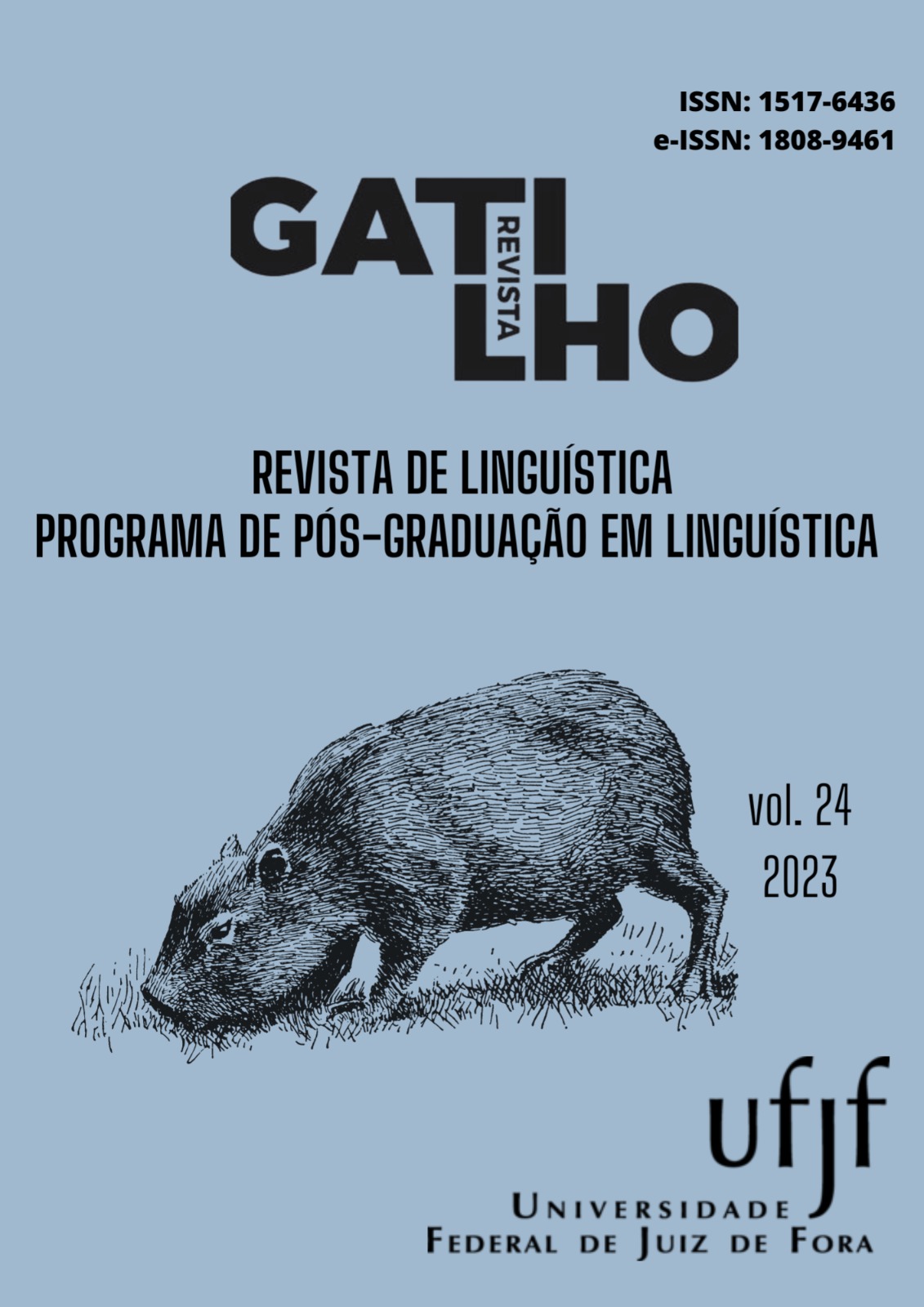A relevância da interação no ensino de língua inglesa nas escolas públicas brasileiras
DOI:
https://doi.org/10.34019/1808-9461.2023.v24.38542Palabras clave:
Interação, Hipótese de Interação, Língua Inglesa., EducaçãoResumen
A interação tem atraído pesquisadores no âmbito da influência das relações pessoais na aquisição de segunda língua (SLA). A Hipótese de Interação afirma que a interação comunicativa relaciona o insumo de linguagem às habilidades e aos resultados de aprendizagem do aluno (output), de modo que os estudantes possam alterar seus resultados, desde que receba um insumo compreensível. Este artigo examina as implicações e a relevância da interação no âmbito da Teoria das Hipóteses de Interação no Ensino e Aquisição de Língua Inglesa em escolas públicas brasileiras. O trabalho visa apresentar os fundamentos teóricos e relacioná-los com a prática em sala de aula. A realidade brasileira do ensino de segunda língua é o ponto de partida para possíveis aplicações dos fundamentos teóricos relacionados a essa teoria. Uma perspectiva cronológica em relação ao Modelo Monitor de Krashen e a hipótese dicotômica de Aquisição e Aprendizagem é delineada. As cinco hipóteses de Krashen são apresentadas com ênfase na Hipótese de Insumo e na Hipótese de Interação. A segunda parte refere-se a uma breve análise da realidade das aulas de inglês como língua estrangeira no Brasil. Sugerem-se como processos interacionais pessoais podem ocorrer no referido contexto com alunos e professores. Em seguida, as tarefas e características dos alunos são discutidas e analisadas, com ênfase nas atitudes dos professores e nas aptidões, motivação e habilidades especiais dos alunos no contexto do ensino de línguas no país.





